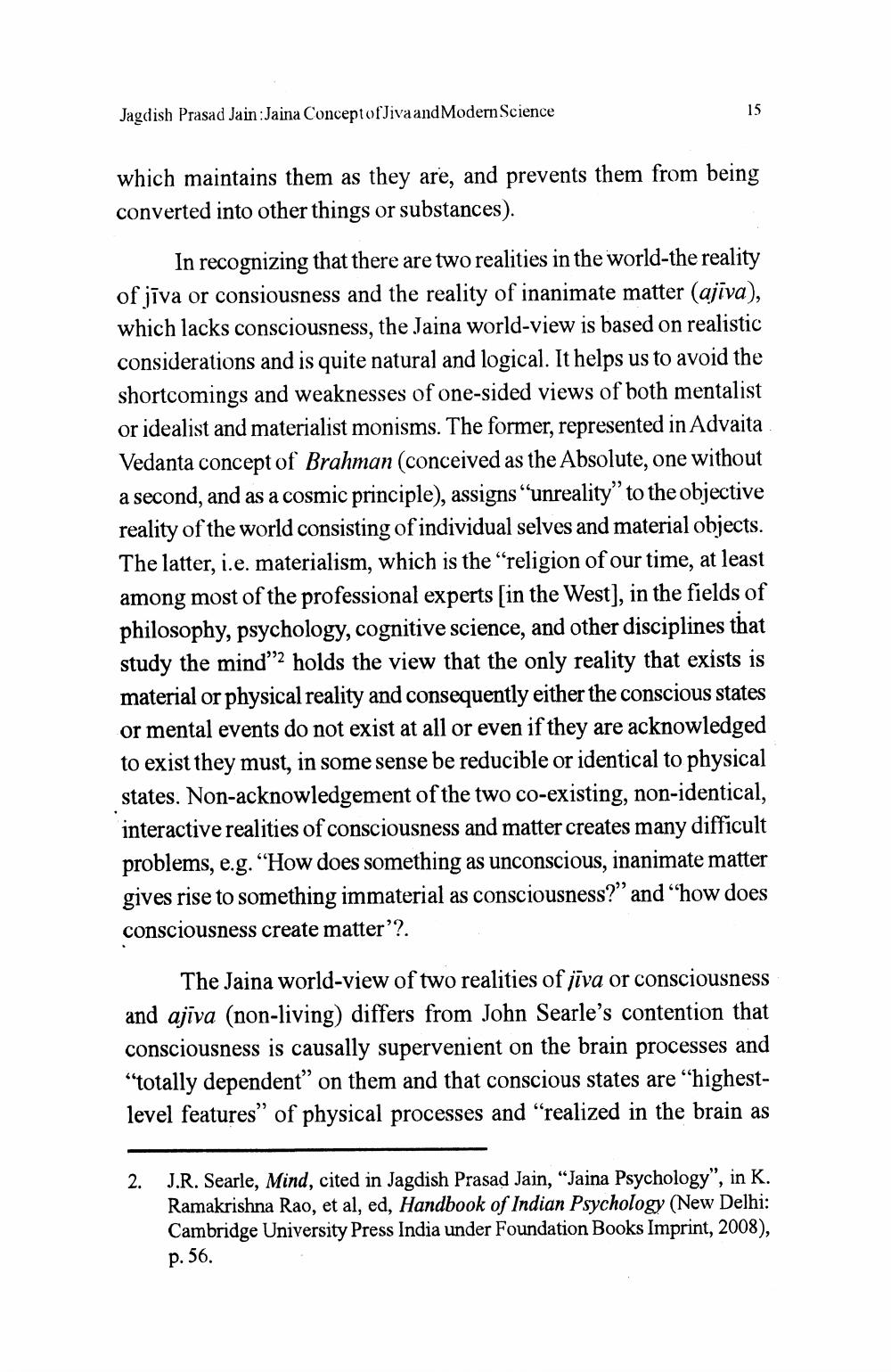________________
Jagdish Prasad Jain: Jaina Concept of Jiva and Modern Science
15
which maintains them as they are, and prevents them from being converted into other things or substances).
In recognizing that there are two realities in the world-the reality of jīva or consiousness and the reality of inanimate matter (ajiva), which lacks consciousness, the Jaina world-view is based on realistic considerations and is quite natural and logical. It helps us to avoid the shortcomings and weaknesses of one-sided views of both mentalist or idealist and materialist monisms. The former, represented in Advaita Vedanta concept of Brahman (conceived as the Absolute, one without a second, and as a cosmic principle), assigns "unreality" to the objective reality of the world consisting of individual selves and material objects. The latter, i.e. materialism, which is the "religion of our time, at least among most of the professional experts [in the West], in the fields of philosophy, psychology, cognitive science, and other disciplines that study the mind'"2 holds the view that the only reality that exists is material or physical reality and consequently either the conscious states or mental events do not exist at all or even if they are acknowledged to exist they must, in some sense be reducible or identical to physical states. Non-acknowledgement of the two co-existing, non-identical, interactive realities of consciousness and matter creates many difficult problems, e.g. "How does something as unconscious, inanimate matter gives rise to something immaterial as consciousness?" and "how does consciousness create matter'?.
The Jaina world-view of two realities of jiva or consciousness and ajiva (non-living) differs from John Searle's contention that consciousness is causally supervenient on the brain processes and "totally dependent" on them and that conscious states are "highestlevel features" of physical processes and "realized in the brain as
2. J.R. Searle, Mind, cited in Jagdish Prasad Jain, "Jaina Psychology", in K. Ramakrishna Rao, et al, ed, Handbook of Indian Psychology (New Delhi: Cambridge University Press India under Foundation Books Imprint, 2008), p. 56.




